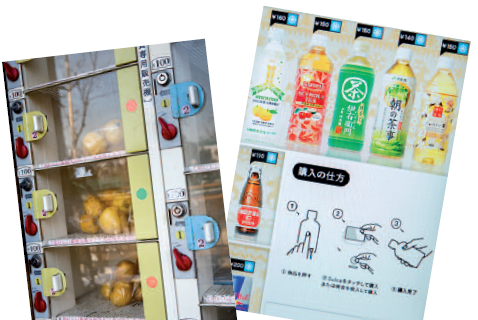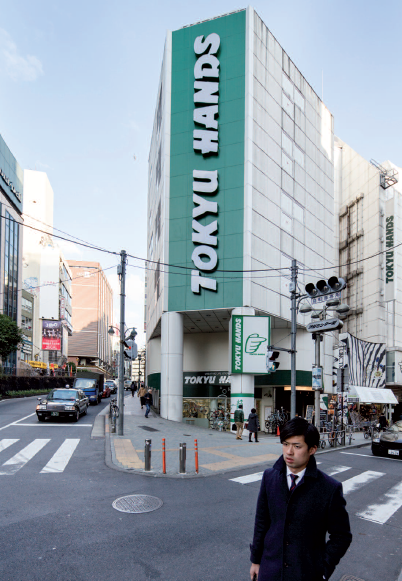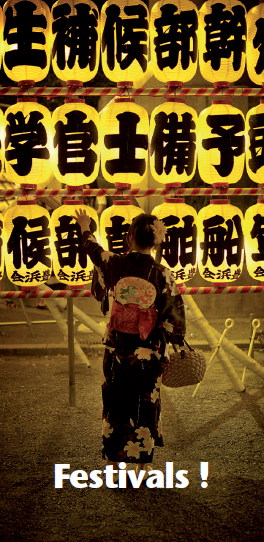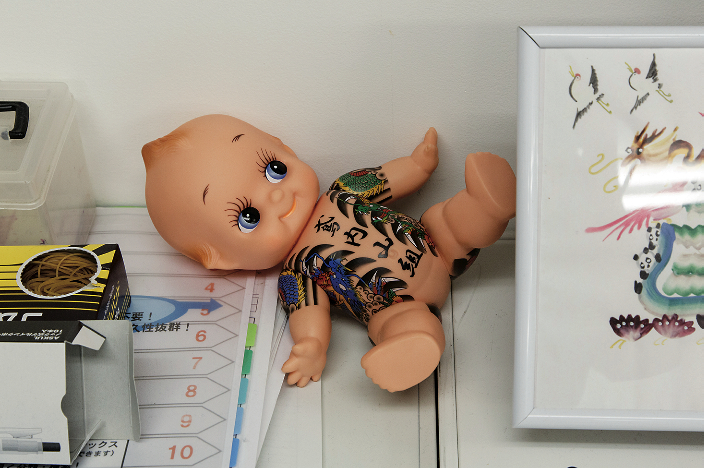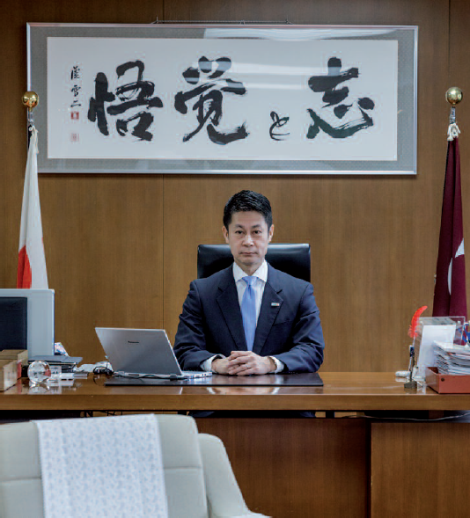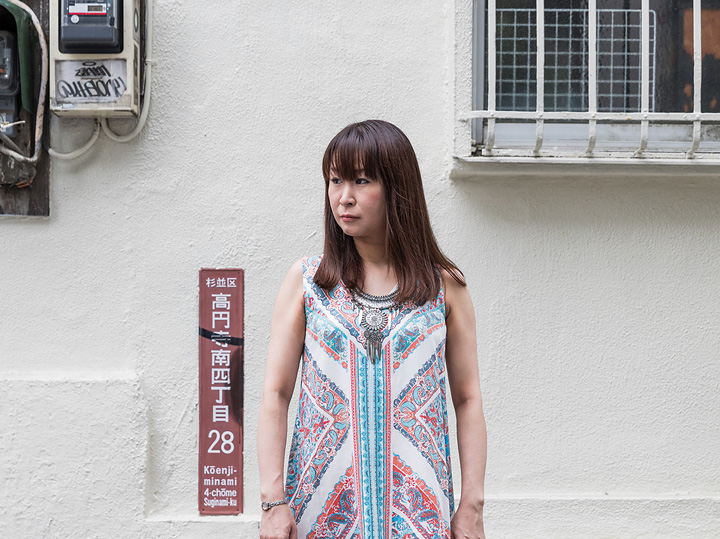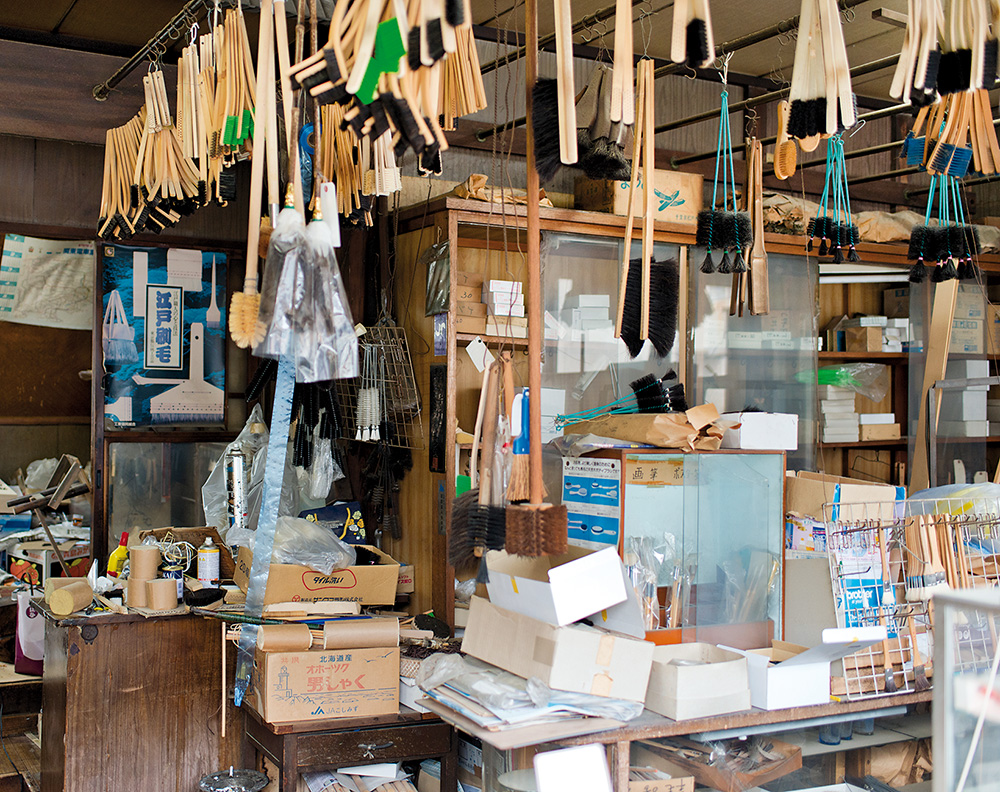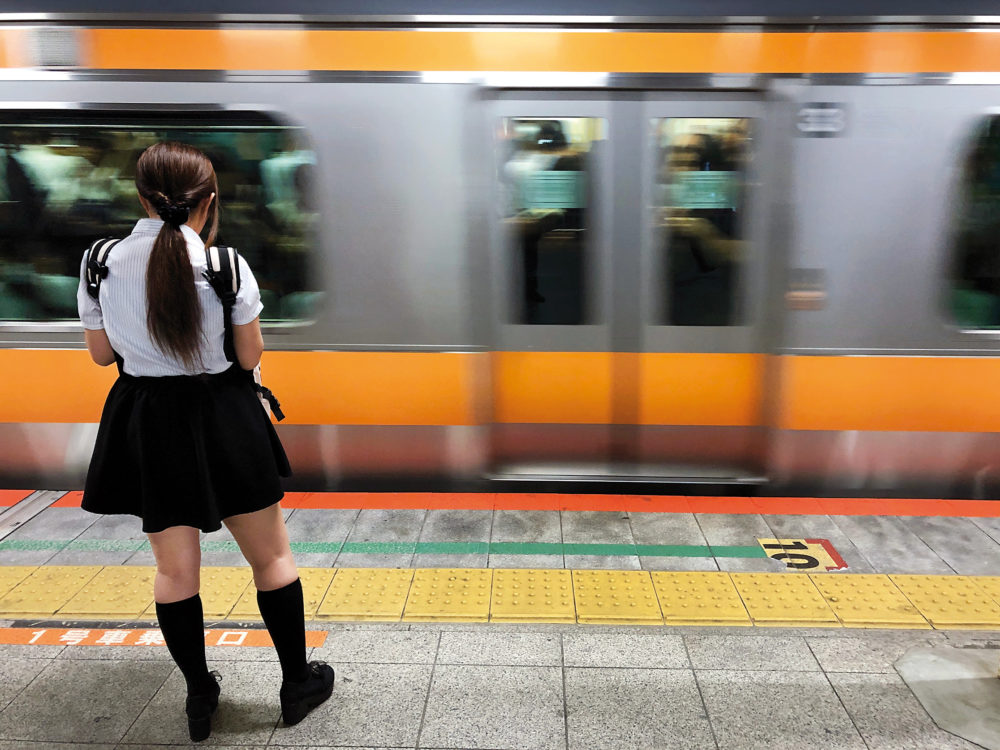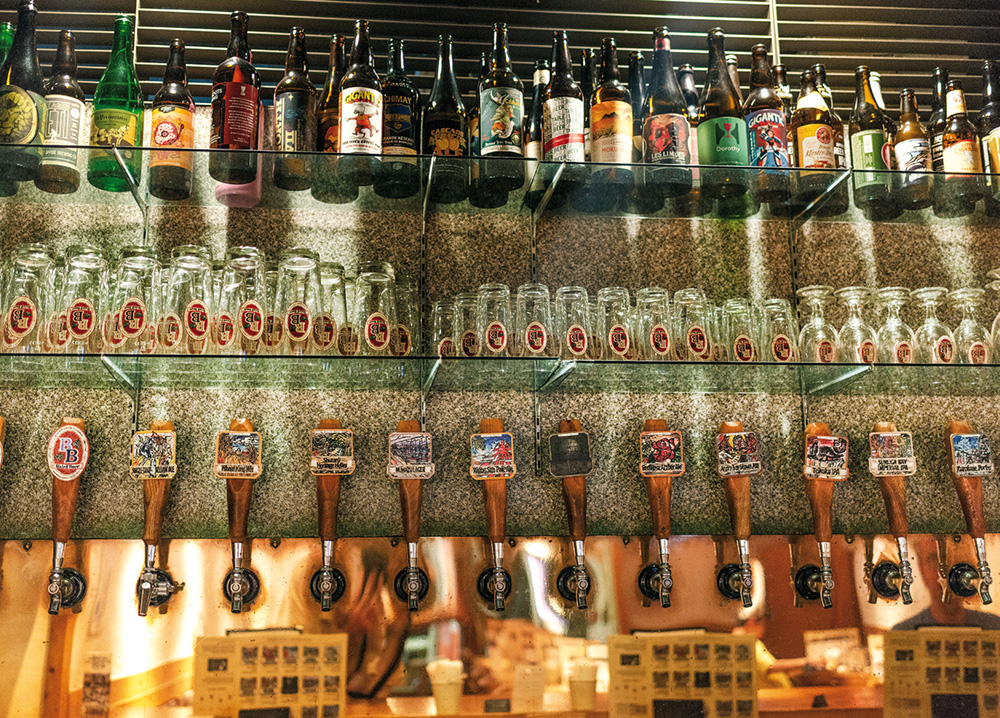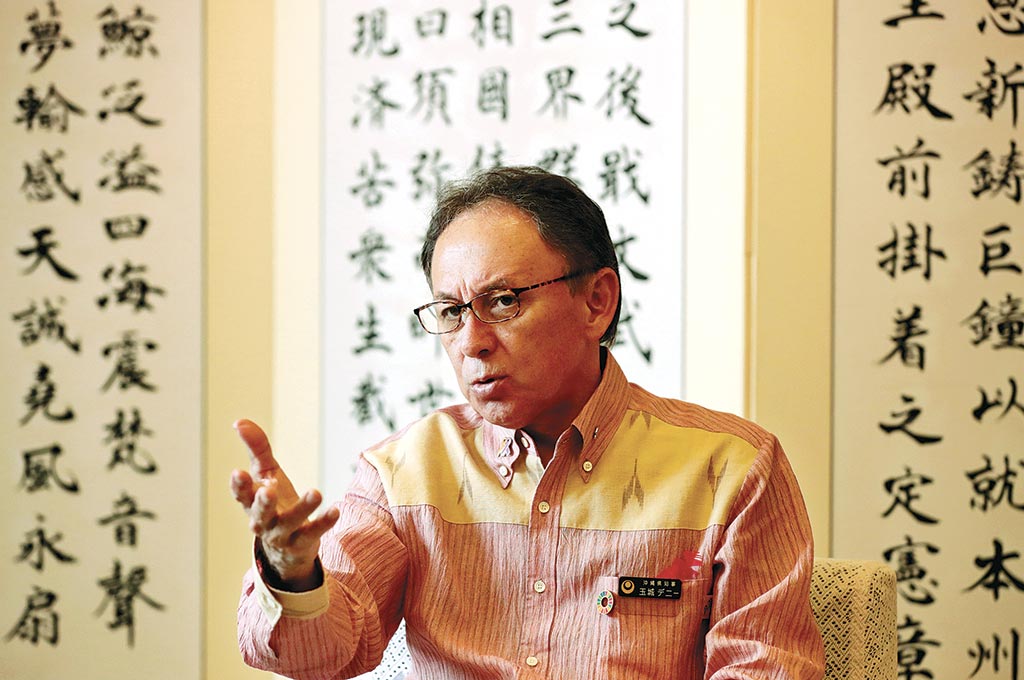

Zoom Japan obtained an exclusive interview with Governor Tamaki Denny to discuss the situation in the archipelago.
Okinawa governor Tamaki Denny likes to wear his bicultural heart on his sleeve. Born in 1959 to an American father and Japanese mother, Tamaki used his mixed heritage to win votes during the 2018 gubernatorial election campaign. Though his declaration that “the United States will listen to me because my father was American” was often taken as a joke, he won that election with 55% of the popular vote and this year he will try to keep his job as Governor of Okinawa Prefecture.
A music lover and former radio DJ, Tamaki avoids the strident anti-American propaganda of many Okinawan politicians and activists. But this does not mean he welcomes the U.S. bases in Okinawa. Indeed, he has long been an outspoken critic of the American military presence in Okinawa.
In fact, Tamaki was born close to one of those bases, on the tip of the Katsuren Peninsula on Okinawa’s main island, and saw American soldiers almost every day. “In the early 1960s, when I was a small kid, the United States had been escalating their presence in Vietnam,” he says. “Even before that, there had been the War in Korea, civil unrest and the founding of the People’s Republic of China. The whole of South-East Asia was really unstable, so a lot of American soldiers had been sent to Okinawa for a tour of duty. In the area where I lived, there was a U.S. base, and around the base the locals had opened numerous shops catering for the soldiers. There were tailors, barber shops, etc. The Japanese could use those shops too, of course, but the Americans were their main clients. And in the same districts there were many bars regularly frequented by the soldiers. So, more than my father, whom I had almost forgotten by that time, my immediate surroundings became my main link with American culture.”
Tamaki’s father was a marine who had fallen in love with a local girl. “My mother became pregnant with me,” Tamaki says, “but before I was born, my father was sent back to America. At first, my mother had planned to follow him, but then she started worrying about how hard it would be to adjust to a new life in the States. They kept in touch for some time, but when I was about a year old, she wrote a letter to my father saying that she wanted to raise me in Okinawa. In the end, they broke up. As a child, I was curious about the father I’d never had, so eventually my mother burned all his photos and letters because she wanted me to forget about him.”
Tamaki traces his love of music back to those days. “The music they played on the juke box spilled out of the open doors of the many bars in my neighbourhood. Even at that early age, I loved listening to music. I hid in the shadows close to the open door, so I couldn’t be seen from inside, and listened to all that wonderful Western pop music.”
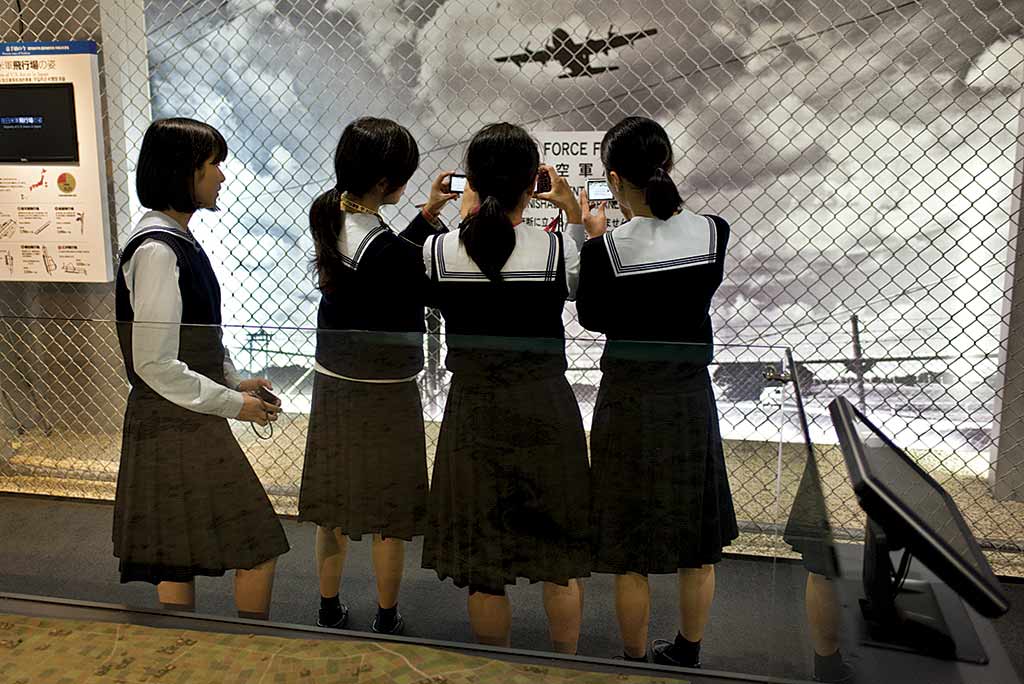
While the anti-base movement was raging in other areas, the town where Tamaki lived was relatively quiet. “The teachers’ union and workers’ unions were pretty active, but not so much against the Americans. One reason for that, besides the economic advantages I mentioned earlier, was that the base itself was located in an isolated spot of land on top of a high hill, while the town was at the bottom. Also, many of the soldiers belonged to the communications corps. There were no jet planes roaring over our heads or other activities that could disrupt our daily lives.
“When I was about four or five, I used to go up to the base to wait for the soldiers to come out. As soon as the gate opened and a car came out, we would shout “Chocolate! Chocolate!” or “Gum! Gum!” and they threw them to us. The best thing I remember is being given a whole apple. I was like, is it alright to eat it all by myself ? Because you see, that was the first time I had an opportunity to take a bite of a whole apple. My mother used to give me just a slice because eating apples was a luxury.”
Tamaki’s childhood memories of the U.S. bases may be positive, but, at the same time, he was consciousthattheAmericanpresenceinOkinawa could also be a source of trouble. “I was born in October 1959. In June that same year, a jet plane that had taken off from Kadena Air Base crashed into an elementary school in Ishikawa City, and many pupils and staff either died or were injured. Other accidents occurred after I was born, but the worst thing was that no matter what happened, the inhabitants of Okinawa and even the Ryukyu police were totally powerless. The U.S. military was a self-contained community and if a member of the armed forces caused an accident or committed a crime he was court-martialled, but wasn’t handed over to the Japanese. From a young age, I got used to hearing similar reports and knew that what was happening was wrong and unfair.”
Tamaki had just started junior high school when Okinawa formally returned to Japanese rule in 1972 after 27 years of U.S. military administrative control. “Since then, Okinawa Prefecture has benefited from several projects undertaken under the Okinawa Promotion and Development Special Measures Law,” he says. “Thanks to the financial aid from Tokyo, we were able to improve the archipelago’s infrastructure, build new roads and dams, ports and airports. We have achieved substantial growth which can be seen today, and were able to develop important tourism and telecommunications-related industries. However, many problems dating back to military rule were left unsolved.”
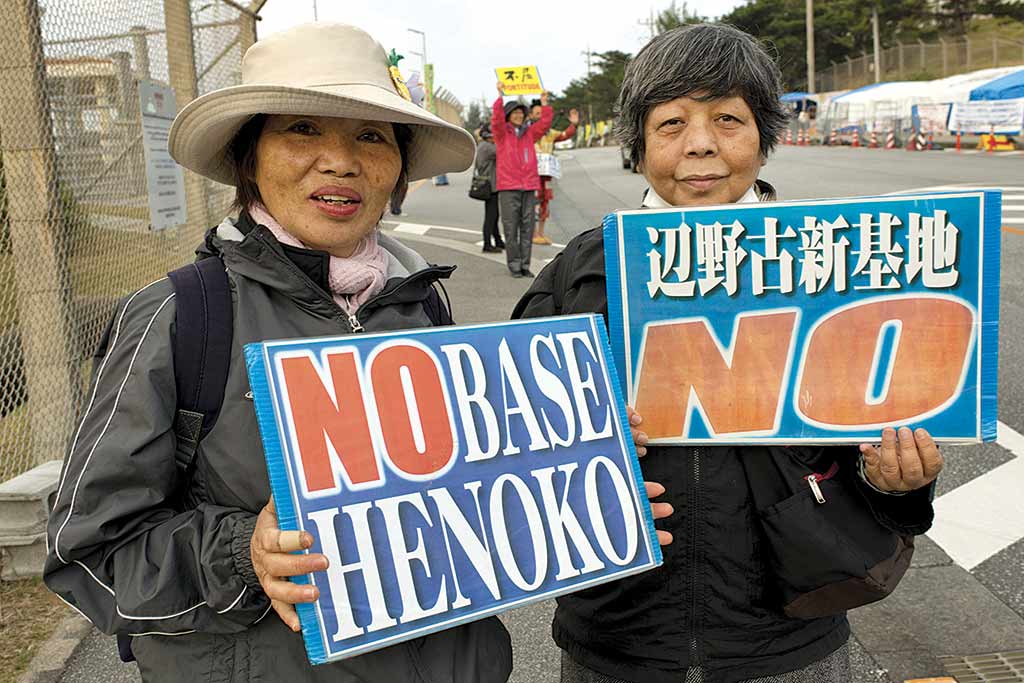
Okinawa Prefecture was created 50 years ago, on the island’s return to Japan. At that time, the general mood was that the Japanese government had managed the whole process without taking into consideration the interests of the people of Okinawa. Therefore, the new prefecture presented a Proposal for Reinstatement Measures, also known as the Yara Proposal (Yara Chobyo was the first governor of Okinawa, from 1972 to 1976), a 132-page document that expressed the Okinawans’ desire to see their basic human rights guaranteed under the national Constitution.
“This proposal,” says Tamaki, “urged the government to give top priority to the welfare of the citizens of the prefecture within the framework of local autonomy and economic development. Another important point was that Okinawa should become an “island of peace” without U.S. bases. But in the end, things went quite differently. Even now, as we celebrate this 50th anniversary, while the areas occupied by the U.S. military bases have decreased in Japan as a whole, the greatest number are still to be found in Okinawa. In fact, 70.3% of the bases are concentrated in our prefecture. Sadly, the kind of redistribution throughout Japan that the people of Okinawa wished for never happened.
“However, apart from the problems related to the U.S. bases, there are other important issues that have become increasingly pressing such as child poverty. These are the problems that we must solve as quickly as possible. Looking ahead to the next 50 years, our priority must be to build an even safer, economically healthier Okinawa for our children and grandchildren.”
When asked about the future of the U.S. bases, Tamaki points out the delays and broken promises on the part of central government. “In the 1950s, the U.S. military presence in Okinawa was justified, first by the need to support the American armed forces fighting in the Korean Peninsula and then by the dangerous influence that other conflicts and social uprisings in Asia might have had on our country. However, this did not stop the creation of a fierce opposition movement not only against the continued presence in Japan of the soldiers who had defeated us in the war but also to the bases’ negative influence on our postwar society.
“In 1996, while discussing the renewal of the lease on land used by the bases, which was due to expire, the U.S. government agreed to return all or part of 11 military bases on Okinawa in five to seven years, or about 20% of the land currently occupied by U.S. troops in Okinawa. This plan was confirmed in 2006. However, to this day, little has been accomplished. Moreover, even if this plan is actually put into practice, the percentage of U.S. bases in Okinawa will only go down from 70.3% to 69%. “Considering all the things that have happened since that first agreement 25 years ago, I think that the time has come to reduce the number of U.S. military bases in Okinawa and distribute them instead throughout the country. As things stand now, Okinawa cannot go on shouldering the social and economic costs of the American presence.”
One of the recent foreign policy developments that worries Tamaki is the rising confrontation between the United States and China. “We will never allow Okinawa to be the target of another military conflict like the Second World War,” he says. “Our request is that the Japanese and U.S. governments proceed with a concrete land return plan by decreasing the U.S. bases to no more than 50% of the American facilities in Japan. To do this, we are requesting that they set specific numerical targets and stick to the plan. Ultimately, our vision for the 21st century is that Okinawa becomes a peaceful and prosperous island without military bases.”
This autumn’s gubernatorial election will be preceded by other local elections which, according to the media, may affect the voters’ decisions. Recently, for instance, the mayoral election in Nago was won by the incumbent Toguchi Taketoyo, who was backed by the pro-bases ruling party. However Tamaki, who is seeking a second mandate, disagrees with this point of view. “The current situation is still hard to judge,” he says. “The other elections may have an impact, and some voters may be affected by those results, but they’re quite different in nature. The one in Nago, for example, was a mayoral election and, in my opinion, it was decided on very local issues. The construction of the U.S. base in Henoko was a problem, of course, but not the only one, probably not even the most important one for many residents. In the end, I think the voters liked what they were told by Toguchi, appreciated his previous work as a mayor, and had confidence both in his ability to continue to do a good job as well as in the policies set by his administration.
“The gubernatorial election, on the other hand, is a general election that interests the whole prefecture. It’s about policies that are going to affect people who live in Naha [the prefecture’s capital] as well as those living in more remote islands. The move of the U.S. base to Nago will be part of the electoral debate, of course, but not the only issue on the table, and the voters will be called to make their decision based on what each candidate has to offer.”
Okinawa, like the rest of Japan, has been badly affected by the COVID-19 pandemic, but Tamaki is already planning for the post coronavirus return to normal life. “There are several things that we can do,” he says, “but I would like to start with what we are already doing now to fight the virus. We continue to encourage immunisation, infection control measures, the reinforcement and enhancement of the testing system, and are ready to provide supplementary funds if needed in the future. The Japanese government also stated that actions against infectious diseases and new economic initiatives will continue to be added to the budget. Our prefecture is taking measures to adjust the national plan to our situation and make it more flexible and easier to use according to the local situation. “As for the post-corona period, first of all I should mention the Okinawa Promotion Plan, which will be decided this year. Right now, it’s being discussed by the government in Tokyo. It will come into effect when the bill is presented to and approved by the National Diet. In accordance with the promulgation of this bill, we have prepared our own requests, some of which go beyond our prefecture and have a global reach, like our SDGs (Sustainable Development Goals).
“Our objective is to integrate three important spheres (society, the economy and the environment) to form a moderate society that leaves no one behind, and to build a strong and healthy self-sustaining economy. We are thinking of developing policies relating to each sphere to harmonise life throughout the region. To be more specific, we want to promote a comprehensive support system for the eradication of child poverty. Also, following the example of other places around the world, we aim to turn Okinawa into a sustainable-tourism destination through the creation of ad-hoc tourism-related industries.
“By comprehensively and tangibly incorporating the policies into the promotion plan, we aim to build a community of people who can feel safe, secure and happy. In this regard, we need to manage the transition from the current emergency situation to a post-COVID-19 life-style in the best way possible. It’s not easy, but it’s very important to balance social measures to keep the virus under control on the one hand, and the economic development on the other. COVID-19 is wreaking havoc in every country. One of our priorities is to achieve business continuity and sustain employment.”
One of the ways that Tamaki is eager to help develop the local economy is through the use ofinternetanddigitalinformation.“Webelieve it will lead to enhanced profitability,” he says. “An example of what I have in mind is the so called Resotech Okinawa programme where Resotech is a combination of “resort” (tourism) and technology. With this programme, various businesses can work together improving their profitability and productivity. Okinawa is a beautiful, fascinating region, and I hope we will be able to create value-added tourism, which will make full use of our local resources.”
Gianni Simone

